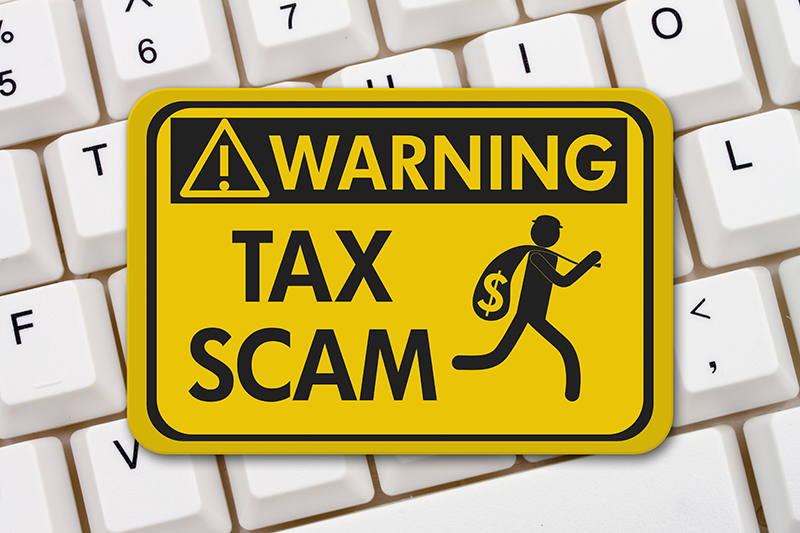TaxAudit reviews the IRS Dirty Dozen tax scams - Part 3
May 21, 2020 by Steve Banner, EA, MBA
It seems like every other day or so we hear in the news about the growing number of criminals and fraudsters that are continually trying to gain access to our personal information, credit cards, and bank accounts through a cunning series of scams and schemes. This problem has become so severe in recent years that the IRS has published a “Dirty Dozen” list to warn taxpayers to beware of joining the thousands of people who lose millions of dollars to scammers each year.
Because these fraudulent schemes operate year-round – and not only during the tax filing season – taxpayers need to remain on guard constantly. We described the first eight of these Dirty Dozen scams in two recent articles when we talked about Phone Scams, Identity Theft, Fake Charities, and Inflated Refund Claims, among other such devious schemes.
This article is the last one in our three-part series, and in it we will describe the remaining four scams on the Dirty Dozen list and point out their warning signs.
Excessive Claims for Business Credits: The tax code offers a number of tax credits such as the Child Tax Credit that allow individual taxpayers to directly reduce the amount of tax they must pay in a given year. In a similar way, the tax code also offers a range of tax credits for businesses to reduce their tax burden. These credits are designed to assist certain industries and are available to those businesses that meet the conditions for eligibility. However, business owners should beware of acting on suggestions by fraudsters to claim tax credits that do not apply to them. For example, even though almost every adult in the country uses gasoline in one form or another, the Fuel Tax Credit generally applies only to off-highway business use or use in farming. And because the Research Credit is designed to provide an incentive for American private industry to invest in research and experimentation, it can only be claimed by businesses who can show they participated in qualified research activities involving science-based experimentation. Filing false claims for credits such as these can lead to substantial fines and penalties.
Offshore Tax Avoidance: As tempting as the thought of reducing one’s tax burden may be, we should all avoid the trap of falling for a proposal to hide funds or income overseas where they will be “concealed” from the long arm of the IRS. The truth of the matter is that there are annual reporting requirements that need to be met by U.S. taxpayers and businesses who maintain financial accounts overseas. Account owners who do not comply with these requirements are breaking the law, at the risk of fines and possible criminal prosecution. Meanwhile, each year the U.S. continues to expand its reporting agreements with other countries, making it even less likely that offshore financial accounts will go unnoticed by the IRS.
Frivolous Tax Arguments: Despite the risk of a $5,000 penalty for filing a frivolous tax return, taxpayers can sometimes find themselves talked into taking a bogus position on their tax return. Scammers, for example, will persuade a taxpayer that the U.S. Constitution states that taxpayers can refuse to pay taxes on moral or religious grounds. Or that it is only Federal employees who must pay income tax, or that residents of states who joined the union after World War I are exempt from federal taxation, and the list goes on. Even though arguments such as these have been repeatedly thrown out in court, scammers continue to receive payment in advance for sharing their questionable “wisdom” with unsuspecting taxpayers.
Abusive Tax Shelters: Schemes of this type involve the misuse and manipulation of a legitimate tax planning tool to produce outsized benefits beyond the original scope of the law to taxpayers. The three most common versions of these schemes are abusive trusts, abusive micro-captive insurance shelters and abusive syndicated conservation easements. The fraudsters who create and sell these schemes can often sound very convincing, as their proposals are based around existing parts of the tax code. However, what they neglect to tell their victims is that they are distorting the law for their own purposes to produce the promised benefits. Meanwhile, the unsuspecting taxpayers who are drawn into such illegal schemes may face prosecution, civil litigation, possible imprisonment and ultimately having to pay all taxes owed along with stiff penalties and interest. Taxpayers are thus well advised to seek an independent opinion when in doubt about any complex products that may be offered to them.
Taxpayers should always bear in mind that they are legally responsible for the contents of their tax return even if it is prepared by someone else. Making sure to choose a reputable tax preparer is, therefore, one way that taxpayers can help protect themselves.
Although the IRS is making progress in identifying the con artists who run scams such as those listed above and in our earlier articles, it is taxpayers themselves who are the first line of defense by remaining vigilant year-round to these often aggressive and constantly-evolving schemes.





